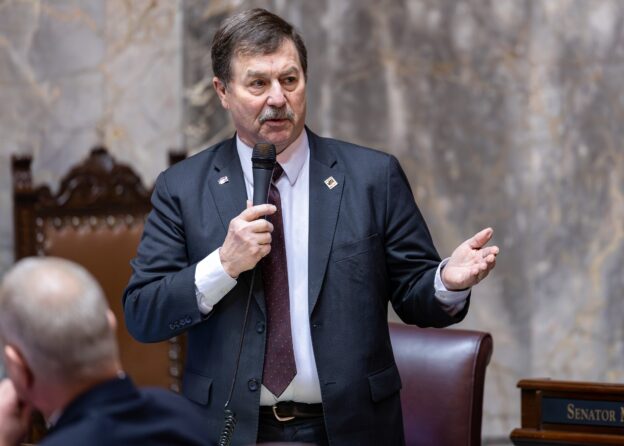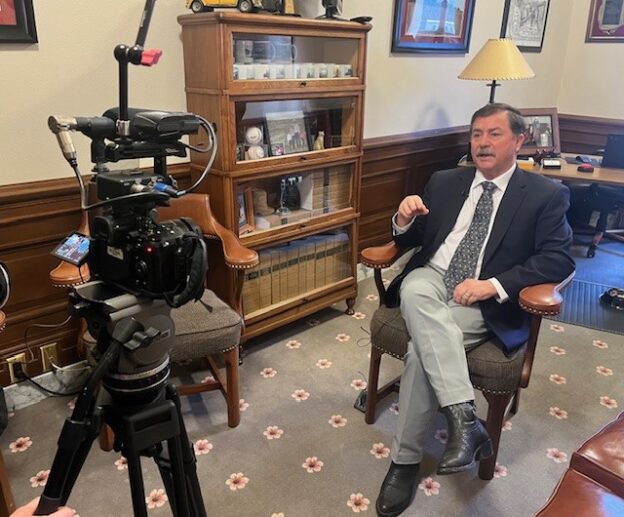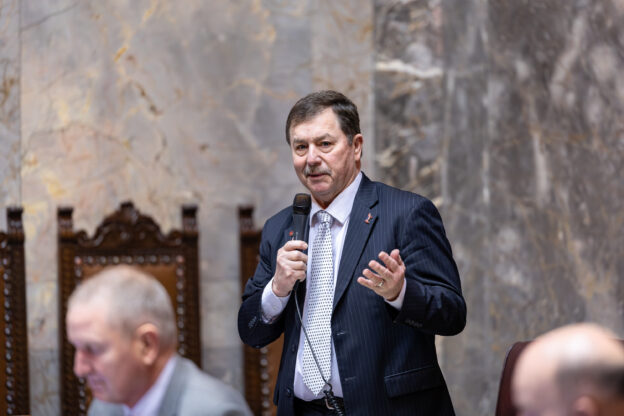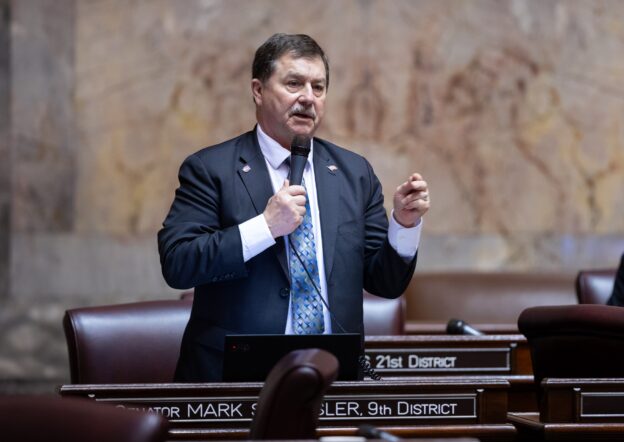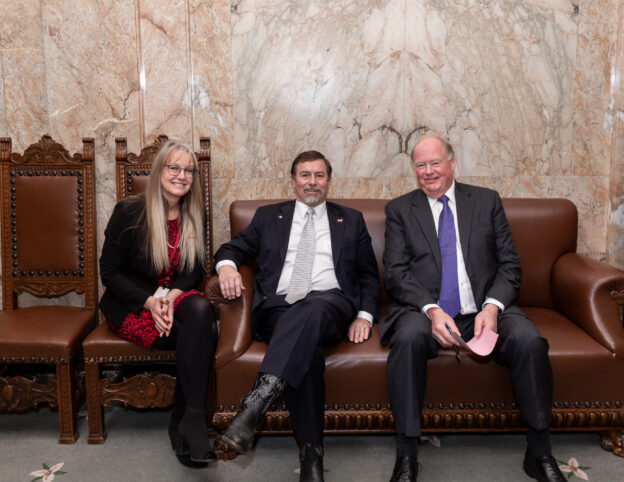The new two-year state operating-budget proposal passed by Senate Democrats today needlessly increases spending and raises taxes by a record amount, says Sen. Mark Schoesler.
The Senate’s operating budget was passed 28-21, with Schoesler and all other Republicans and two Democrats voting against it.
The Senate Democrats’ operating budget has a total price tag of $78.6 billion, a 9% spending increase over the current two-year budget.
“There are two main problems with the Senate Democrats’ operating budget: It raises taxes and overspends, despite the state facing a budget shortfall of more than $6 billion,” said Schoesler, R-Ritzville. “In fact, their budget adds an obscenely large amount – $12.1 billion – in new policy spending. At a time when state government should live within the existing revenue, Democrats again are insisting on unsustainable spending, putting our state on a path that eventually could hurt the vulnerable. It even spends nearly all of the state’s rainy-day fund, which is risky in itself since that money is meant for true budget emergencies, not to cover the Democrats’ unending desire to grow government, at the expense of hard-working Washingtonians.”
Schoesler points out the Senate Democrats’ operating budget would impose over $21 billion in new or higher taxes, including a hike in the amount state and local governments can raise property-tax rates annually without voter approval.
“Keep in mind Democrats last year planned to triple the allowable growth rate for property taxes to 3% annually, from 1%, but they backed off due to strong public opposition. The Senate Ds’ new plan would eliminate any cap. You and other property owners could face annual property-tax increases of 8% or higher. Such a large hike in property taxes year after year could force many homeowners and renters out of their homes at a time when housing is already a challenge for many in Washington,” said Schoesler.
On top of their proposed tax hikes, Senate Democrats want to increase fees that would hit many families. They have proposed raising tuition by $3,000 a year per family, which flies in the face of the tuition freeze that the Senate Majority Coalition Caucus (Republicans plus two Democrats) achieved many years ago, as well as eliminating financial aid for about 17,000 students. Democrats also want to double long-term care fees, adding $90 million in costs that will be passed on to Washington residents who pay privately for long-term care insurance, which makes the WA Cares program even more costly.
During debate on the operating budget, Republicans tried to pass a floor amendment that would have replaced the Democrats’ operating budget with the Republican budget proposal, which would not require any tax increases while maintaining spending levels for essential state services.
“Our Republican plan avoids the false argument that you either have to significantly raise taxes or drastically reduce spending to balance the state operating budget. Our plan offers a sensible third way to address the budget shortfall. Unfortunately, the floor amendment to use the Republican budget was rejected by majority Democrats on a party-line vote,” said Schoesler, who pointed out that the Republican budget plan also would allow the Discover Pass fee and hunting and fishing license fees to remain untouched.
“The majority budget is going to tax the people who fish and hunt to help the general-fund budget. That is just wrong. Our friends and neighbors should not be treated like they are millionaires to get more money out of them,” said Schoesler.
The House of Representatives is expected to pass its version of the operating budget on Monday. After that happens, Senate and House budget leaders will meet to work out differences between the two proposals and agree on a compromise budget.











